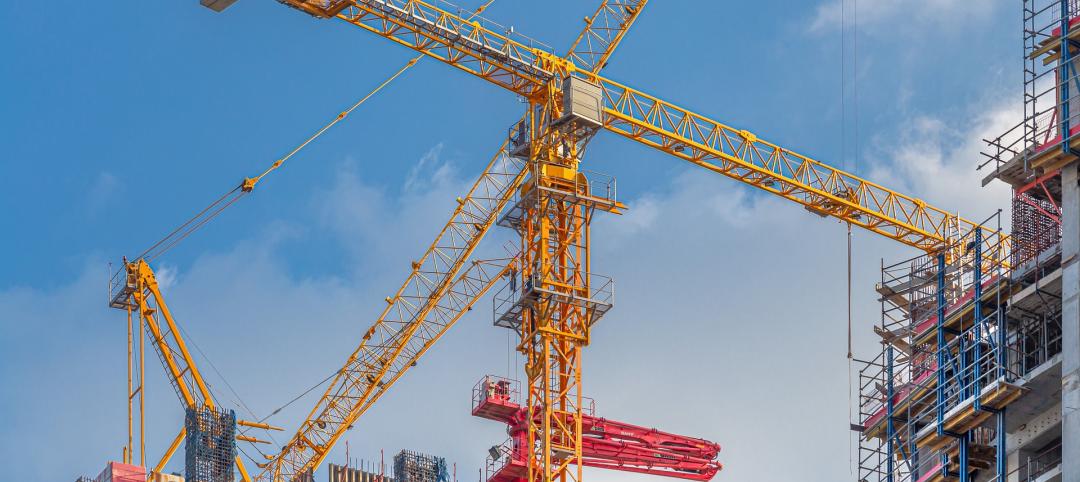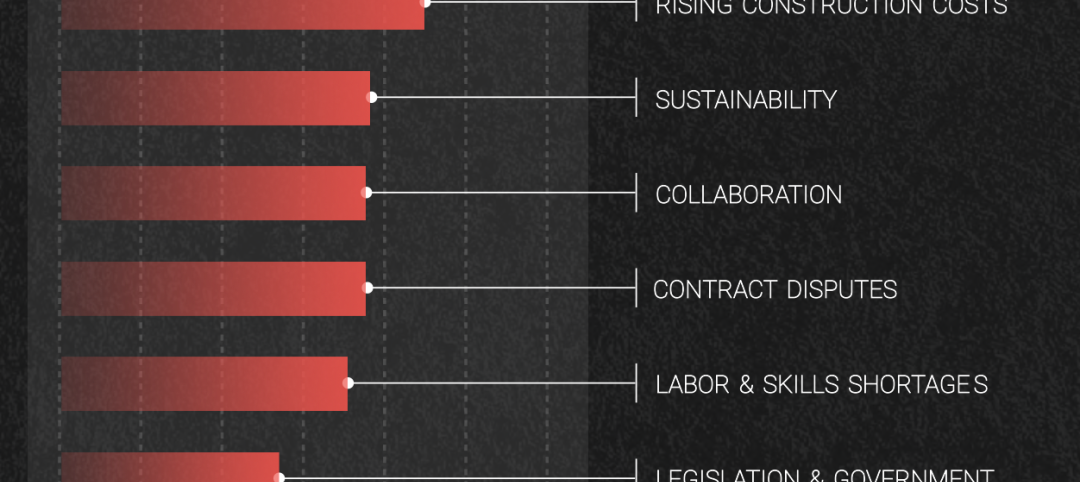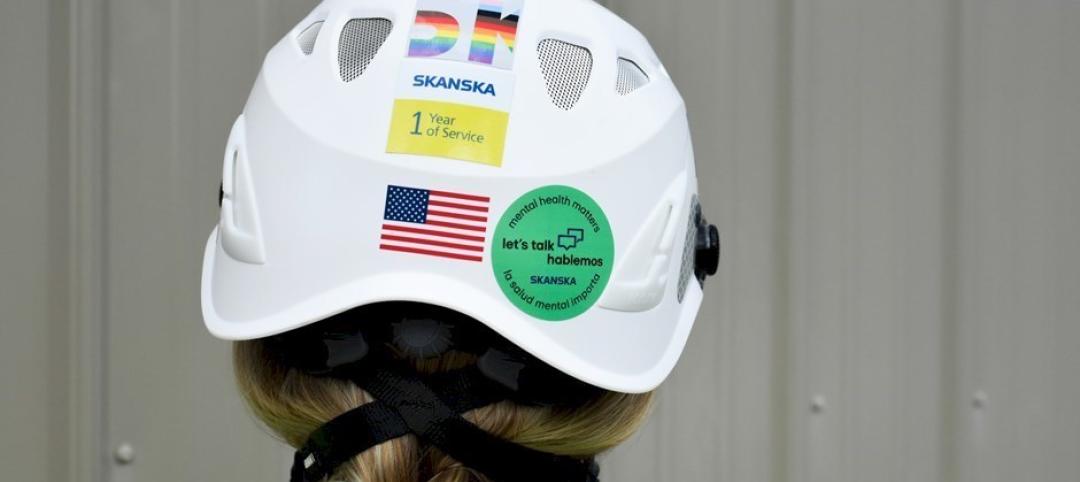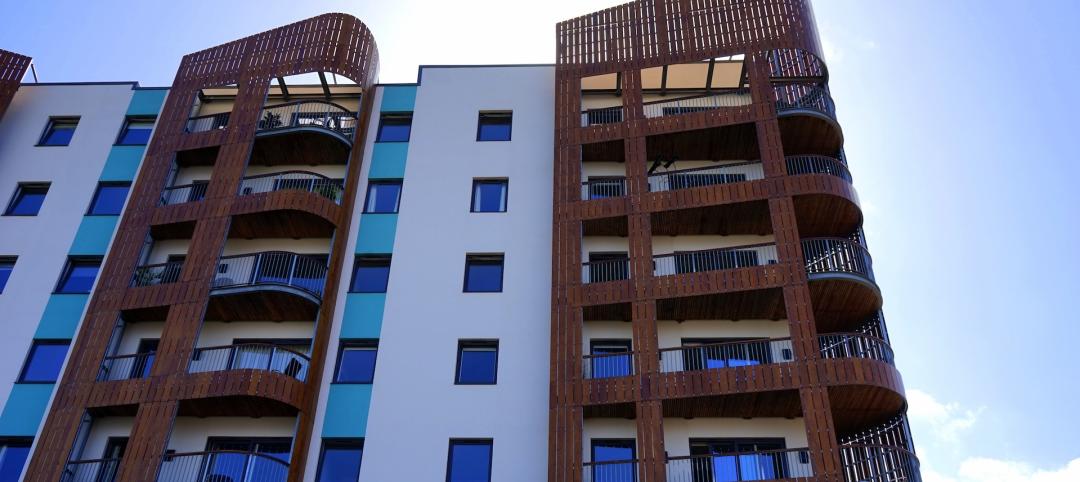In an effort to support the health, safety and wellbeing of students, the American Institute of Architects (AIA) is releasing 3D design models and strategies today that can assist education officials with reopening schools during the pandemic.
For the 2020-21 school year, districts are facing the difficult task of determining if K-12 schools will reopen this fall. As part of the AIA’s initiative, “Reopening America: Strategies for Safer Buildings,” the AIA’s team—comprised of architects, public health experts, engineers, and facility managers—assessed hazards in K-12 schools and developed strategies to mitigate risk of COVID-19 transmission.
In addition to the 3D design models—produced by VMDO Architects—detailing strategies for classrooms and corridors, the team is releasing a report that provides additional considerations for entrances, gymnasiums, assembly spaces, cafeterias and other spaces. Other strategies are also available for restrooms and staff spaces such as offices. The report also elaborates on the many factors that need to be taken into consideration when reopening schools and provides basic building blocks that can be adjusted on a case-by-case basis when working with design teams to ensure the needs of individual education facilities are met when adapting buildings for COVID-19.
Findings in the report are meant to work in tandem with tools that can assist education officials with preparing schools for reopening, including a seven-step Risk Management Plan for Buildings for assessing hazards and applying strategies that reduce risk and the AIA’s Re-occupancy Assessment Tool, which provides a framework of strategies for making buildings safer.
Resources were developed from a wide range of expertise using a virtual charrette workshop – a method used to study specific issues in a limited time frame using an intense brainstorming session.
As part of the sessions, a group of public, environmental, and occupational health experts and physicians provided an independently developed 90-minute briefing on SARS-CoV-2 infectious disease transmission, epidemiological models, and insights into the most current research of the virus as of early June. For more detailed information on public health hazards and considerations in schools, see AIA’s COVID-19 emerging research and public health data.
Tailored strategies and considerations for senior living facilities are also being developed and will be released in the near future.
Visit AIA’s website for more COVID-19 resources for architects.
Related Stories
Market Data | Jul 5, 2023
Nonresidential construction spending decreased in May, its first drop in nearly a year
National nonresidential construction spending decreased 0.2% in May, according to an Associated Builders and Contractors analysis of data published today by the U.S. Census Bureau. On a seasonally adjusted annualized basis, nonresidential spending totaled $1.06 trillion.
Apartments | Jun 27, 2023
Average U.S. apartment rent reached all-time high in May, at $1,716
Multifamily rents continued to increase through the first half of 2023, despite challenges for the sector and continuing economic uncertainty. But job growth has remained robust and new households keep forming, creating apartment demand and ongoing rent growth. The average U.S. apartment rent reached an all-time high of $1,716 in May.
Industry Research | Jun 15, 2023
Exurbs and emerging suburbs having fastest population growth, says Cushman & Wakefield
Recently released county and metro-level population growth data by the U.S. Census Bureau shows that the fastest growing areas are found in exurbs and emerging suburbs.
Contractors | Jun 13, 2023
The average U.S. contractor has 8.9 months worth of construction work in the pipeline, as of May 2023
Associated Builders and Contractors reported that its Construction Backlog Indicator remained unchanged at 8.9 months in May, according to an ABC member survey conducted May 20 to June 7. The reading is 0.1 months lower than in May 2022. Backlog in the infrastructure category ticked up again and has now returned to May 2022 levels. On a regional basis, backlog increased in every region but the Northeast.
Industry Research | Jun 13, 2023
Two new surveys track how the construction industry, in the U.S. and globally, is navigating market disruption and volatility
The surveys, conducted by XYZ Reality and KPMG International, found greater willingness to embrace technology, workplace diversity, and ESG precepts.
| Jun 5, 2023
Communication is the key to AEC firms’ mental health programs and training
The core of recent awareness efforts—and their greatest challenge—is getting workers to come forward and share stories.
Contractors | May 24, 2023
The average U.S. contractor has 8.9 months worth of construction work in the pipeline, as of April 2023
Contractor backlogs climbed slightly in April, from a seven-month low the previous month, according to Associated Builders and Contractors.
Multifamily Housing | May 23, 2023
One out of three office buildings in largest U.S. cities are suitable for residential conversion
Roughly one in three office buildings in the largest U.S. cities are well suited to be converted to multifamily residential properties, according to a study by global real estate firm Avison Young. Some 6,206 buildings across 10 U.S. cities present viable opportunities for conversion to residential use.
Industry Research | May 22, 2023
2023 High Growth Study shares tips for finding success in uncertain times
Lee Frederiksen, Managing Partner, Hinge, reveals key takeaways from the firm's recent High Growth study.
Multifamily Housing | May 8, 2023
The average multifamily rent was $1,709 in April 2023, up for the second straight month
Despite economic headwinds, the multifamily housing market continues to demonstrate resilience, according to a new Yardi Matrix report.

















